Richard predicts Oscar winners on CP24 with Stephen LeDrew
 Richard predicts Oscar winner on CP24 with Stephen LeDrew!
Richard predicts Oscar winner on CP24 with Stephen LeDrew!
Watch the whole thing HERE!
 Richard predicts Oscar winner on CP24 with Stephen LeDrew!
Richard predicts Oscar winner on CP24 with Stephen LeDrew!
Watch the whole thing HERE!
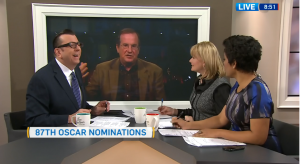 Oscar nods: 87th Academy Award nominations announced on “Canada AM” with Richard, Beverly Thomson, Marci Ien and Deadline’s Pete Hammond.
Oscar nods: 87th Academy Award nominations announced on “Canada AM” with Richard, Beverly Thomson, Marci Ien and Deadline’s Pete Hammond.
Watch the whole thing HERE!
Best Picture
“American Sniper”
“Birdman”
“Boyhood”
“The Grand Budapest Hotel”
“The Imitation Game”
“Selma”
“The Theory of Everything”
“Whiplash”
Actor in a Leading Role
Steve Carell, “Foxcatcher”
Bradley Cooper, “American Sniper”
Benedict Cumberbatch, “The Imitation Game”
Michael Keaton, “Birdman”
Eddie Redmayne, “The Theory of Everything”
Actress in a Leading Role
Marion Cotillard, “Two Days One Night”
Felicity Jones, “The Theory of Everything”
Julianne Moore, “Still Alice”
Rosamund Pike, “Gone Girl”
Reese Witherspoon, “Wild”
Actor in a Supporting Role
Robert Duvall, “The Judge”
Ethan Hawke, “Boyhood”
Edward Norton, “Birdman”
Mark Ruffalo, “Foxcatcher”
J.K. Simmons, “Whiplash”
Actress in a Supporting Role
Patricia Arquette, “Boyhood”
Laura Dern, “Wild”
Emma Stone, “Birdman”
Keira Knightley, “The Imitation Game”
Meryl Streep, “Into the Woods”
Directing
Alejandro Gonzalez Inarritu, “Birdman”
Richard Linklater, “Boyhood”
Wes Anderson, “The Grand Budapest Hotel”
Morten Tyldum, “The Imitation Game”
Bennett Miller, “Foxcatcher”
Foreign Language Film
“Ida”
“Leviathan”
“Tangerines”
“Wild Tales”
“Timbuktu”
Writing – Adapted Screenplay
Graham Moore, “The Imitation Game”
Damien Chazelle, “Whiplash”
Anthony McCarten, “The Theory of Everything”
Jason Hall, “American Sniper”
Paul Thomas Anderson, “Inherent Vice”
Writing – Original Screenplay
Richard Linklater, “Boyhood”
Alejandro González Iñárritu, Nicolás Giacobone, Alexander Dinelaris and Armando Bo, “Birdman”
Wes Anderson and Hugo Guinness, “The Grand Budapest Hotel”
Dan Gilroy, “Nightcrawler”
E. Max Frye and Dan Futterman, “Foxcatcher”
Cinematography
Emmanuel Lubezki, “Birdman”
Roger Deakins, “Unbroken”
Robert D. Yeoman, “The Grand Budapest Hotel”
Dick Pope, “Mr. Turner”
Lukasz Zal and Ryszard Lynzewski, “Ida”
Music – Original Score
Hans Zimmer, “Interstellar”
Alexandre Desplat, “The Imitation Game”
Johann Johannsson, “The Theory of Everything”
Alexandre Desplat, “The Grand Budapest Hotel”
Gary Yershon, “Mr Turner”
Makeup and Hairstyling
“Foxcatcher”
“The Grand Budapest Hotel”
“Guardians of the Galaxy”
Costume Design
Colleen Atwood, “Into the Woods”
Anna B. Sheppard, “Maleficent”
Milena Canonero, “The Grand Budapest Hotel”
Jacqueline Durran, “Mr. Turner”
Mark Bridges, “Inherent Vice”
Music – Original Song
“Glory” by Common and John Legend, “Selma”
“Lost Stars” by Gregg Alexander, Danielle Brisebois, Nick Lashley and Nick Southwood, “Begin Again”
“Everything Is Awesome” by Shawn Patterson, “The LEGO Movie”
“I’m Not Gonna Miss You,” by Glen Campbell, “Glenn Campbell: I’ll Be Me”
“Grateful,” “Beyond the lights”
Visual Effects
“Interstellar”
“Dawn of the Planet of the Apes”
“Guardians of the Galaxy”
“Captain America: Winter Soldier”
“X-Men: Days of Future Past”
Documentary Short Subject
“Crisis Hotline: Veterans Press 1”
“Joanna”
“Our Curse”
“White Earth”
“The Reaper”
Documentary Feature
“Citizenfour”
“Last Days in Vietnam”
“Virunga”
“The Salt of the Earth”
“Finding Vivian Maier”
Film Editing
Sandra Adair, “Boyhood”
Tom Cross, “Whiplash”
William Goldenberg, “The Imitation Game”
Joel Cox and Gary Roach, “American Sniper”
Barney Pilling, “The Grand Budapest Hotel”
Sound Editing
“Interstellar”
“Unbroken”
“The Hobbit: The Battle of the Five Armies”
“American Sniper”
“Birdman”
Sound Mixing
Mark Weingarten, “Interstellar”
Thomas Curley, ”Whiplash”
“Unbroken”
“American Sniper”
“Birdman”
Production Design
“Into the Woods”
“The Grand Budapest Hotel”
“Interstellar”
“The Imitation Game”
“Mr. Turner”
Short Film – Live Action
“Boogaloo and Graham”
“Aya”
“Butterlamp”
“Parvenah”
“The Phone Call”
Short Film – Animated
“Feast”
“The Bigger Picture”
“A Single Life”
“The Dam Keeper”
“Me and My Moulton”
Animated Feature Film
“Big Hero 6”
“How to Train Your Dragon 2”
“The Boxtrolls”
“The Tale of the Princess Kaguya”
“Song of the Sea”
 Richard’s “Golden Globes” predictions on CP24 with hosts Nneka Elliot and Travis Dhanraj!
Richard’s “Golden Globes” predictions on CP24 with hosts Nneka Elliot and Travis Dhanraj!
Watch the whole thing HERE!
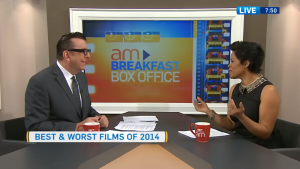 Richard and “Canada AM” host Marci Ien have a look at the Best and Worst movies of 2014. Watch the whole thing HERE!
Richard and “Canada AM” host Marci Ien have a look at the Best and Worst movies of 2014. Watch the whole thing HERE!
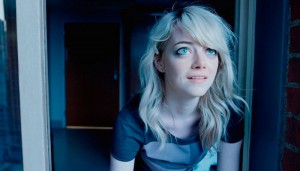 NICE LIST (in alphabetical order):
NICE LIST (in alphabetical order):
1.) Birdman: Every now and again a movie comes along that is so artfully weird, so unconventional in its approach and ethos, that it defies description and earns a recommend even though it isn’t completely successful in reaching its loft goals. “Birdman or (The Unexpected Virtue of Ignorance),” the new film from “Babel” director Alejandro González Iñárritu, is that movie.
In what may be the most meta casting coup of the year Michael Keaton plays Riggan Thomson, a former movie star whose fame floundered when he left the “Birdman” franchise of super hero movies. Twenty years later with his money running out, he makes a comeback bid in the form of a Broadway show based on a Raymond Carver novel. Surrounded by family—daughter Sam (Emma Stone)—friends—BFF Brandon (Zach Galifianakis)—intense actors—played by Edward Norton, Andrea Riseborough and Naomi Watts—and a nasty theatre critic (Lindsay Duncan) who resents movie star Riggins for taking up space in a theatre that could have been used for art, he fights to reestablish himself as a serious actor.
“Birdman” could have been a stunt film. The casting of “Batman” star Keaton as a washed up former superhero is inspired but mostly because he hands in a performance that rides the line between comedic and pathos. “I’m the answer to a Trivial Pursuit question,” he says.
It doesn’t feel like stunt casting because Keaton plays the truth of the situation and not just the situation. His Riggins is obnoxious, self-absorbed and yet earnest in his desire to create great art. Keaton plays it all, wallowing in a stew of self-pity—he says he looks like “a turkey with leukemia.”—and ego while never once trying to appeal to the audience’s good graces. It’s a bravura performance that is the beating heart of this strange beast.
2.) Boyhood: Director Richard Linklater’s twelve-years-in-the-making, coming of age story “Boyhood,” is more than a slice of life. It’s slices of lives anchored by one character, Mason, played by Ellar Coltrane, who was six when filming began, eighteen when the movie wrapped.
When “Boyhood” begins with Mason and his sister Samantha (Lorelei Linklater) are being raised by their mom (Patricia Arquette). Their father (Ethan Hawke) is a sporadic presence, an absentee dad who’s trying to do better. Mason is an introverted, artistic boy, Samantha an extrovert who rolls her eyes and hates the clothes her mother chooses for her.
To tell more would do the movie a disservice because the extraordinary thing about this movie isn’t the story, it’s the performances and the scope. The story of a single mother coping with bad relationship choices as she tries to better her life and the lives of her kids isn’t particularly new.
Here it is the execution that counts.
Linklater’s decade long shoot is more than just a gimmick, it’s a technique that sucks the viewer in, much in the same way home movies, viewed many years later, can evoke deeply held feelings. Watching these characters grow up on screen, literally, brings an authenticity to the film and the story, almost like a documentary. “56 Up,” in which director Michael Apted revisits the same group of British-born adults every seven years, is similar, but “Boyhood” feels different. The narrative construct of watching the character Mason grow up on screen is one thing, but on a larger scale we’re also watching Coltrane mature and that’s what makes this movie special.
3.) Gone Girl: “Gone Girl” is about many things. It’s about the perfect crime. It’s about the disintegration of a marriage. It’s about the mob mentality that shows like Nancy Grace creates when “innocent until proven guilty” becomes a meaningless catchphrase. Heck, it’s even about proving Tyler Perry actually can act but mostly its about keeping the audience perched on the edge of their collective seats.
When Amy (Rosamund Pike) and Nick (Ben Affleck) first meet both are writers living in New York City. It’s love at first sight. “We’re so cute I want to punch us in the face,” she says. but after a few years of marriage, a recession and a downsizing from Manhattan to Missouri, things go sour. On the morning of their seventh anniversary Amy disappears, leaving behind only an over turned coffee table and a smear of blood in the kitchen. In the coming days Nick’s life is turned upside down. “It’s like I’m on a Law and Order episode,” he says. His wife is gone, her over protective parents are on the scene and he is suspect number one.
Director David Fincher has constructed an intricate, he-said-she-said thriller, based on a bestseller of the same name by Gillian Flynn, that relies on the element of surprise.
Ben Affleck is a bright light but Pike burns a hole in the screen. The former Bond girl and “An Education” star has never been better. Cold and calculating, terrified and terrifying, she puts the femme in fatale. A star in the Brian DePalma mode, she’s capable of almost anything except being ignored. It’s a bravura performance and one that will garner attention come Oscar time.
“Gone Girl” is not great art, but it is an artfully made potboiler with memorable performances and slick direction that will keep you guessing until the end.
4.) The Grand Budapest Hotel: In keeping with Anderson’s style, the story of Gustave H and the hotel is rich with nuance and detail but never feels overwhelming or tiresome. It’s a wittily whimsical story that feels transported in from a bygone era. It’s funny and elegant, feeling like a throwback to the Ealing Comedies complete with social commentary, farce and laugh-out-loud situational comedy.
At its twee little heart is Ralph Fiennes in a strangely mannered performance that not only provides many of the film’s best moments—his Benny Hill style escape from the police is hysterical—but also it’s heart.
Like the movie itself, the performance is original, unexpected and oddly affecting.
With “The Grand Budapest Hotel” Wes Anderson has found a balance between his highly stylized artistic vision, story and heart.
5.) Guardians of the Galaxy: “Guardians of the Galaxy” has a playful tone. From Pratt’s signature line, “Peter Quill, people call me Star-Lord,” to a soundtrack stuffed with 70s era pop music—like “Hooked On A Feeling” by Blue Swede and Rupert Holmes’s “Escape (The Piña Colada Song)”—and actors in blue-headed alien masks, the movie feels like a throwback to old-school action-adventure.
It’s filled with one-liners, sight gags and funny moments that play off the more standard blockbuster-style action and battle scenes. Pratt has an offhand delivery that recalls Harrison Ford in Han Solo mode, Cooper does wisecracks like a skilled Catskills comic and (ALMOST A SPOILER) there’s Baby Groot to up the cute factor. They supply the light moments, but despite Cooper’s presence, this isn’t “The Hangover” in space, it’s an all out action movie with a blithe spirit.
6.) The Lego Movie: “The Lego Movie” is possibly the weirdest, most psychedelic kid’s entertainment since “H.R. Pufnstuf.”
Released by a big corporation—Warner Bros—and based on one of the world’s most popular toys, it manages to feel as though a kid who threw away his Lego kit’s instructions and snapped the blocks together in random, fun ways made it.
The first thing you notice about “The Lego Movie” is the look. It’s computer-animated but looks like stop-motion. The film’s handmade composition isn’t slick, but it is playful, which is a perfect compliment to its Lego origins. (It should be noted, however, that the movie in no way plays like a commercial for the toys.) From the crude Lego flames to the awkward way the characters move, the movie is completely consistent in its vision of a Lego world.
The second thing you’ll notice is how off the wall the story is. It’s not just off-the-wall, it’s off-the-planet. Directors and co-writers Phil Lord and Christopher Miller have taken the movie’s credo of battling against conformity to heart and made a big budget studio movie that bends all the rules. At its heart it’s a simple hero journey, a primal story about good against evil, but frenetic storytelling and inventive twists in almost every scene add a richness that belies its humble toy story origins.
7.) Nightcrawler: The old maxim “If it bleeds it leads” has been heard at least once in every newsroom the world over. The more sensational the story, the better placement it will receive in the newspaper or on the nightly news. “Nightcrawler,” a new movie starring Jake Gyllenhaal, takes it one step further.
The news director of KWLA, Los Angeles’s lowest rated morning news show wants more than just blood. What leads on her broadcast? “A screaming woman running down the street with her throat cut.”
Gyllenhaal is Lou Bloom, a slick talking drifter who falls into the freelance news gathering business after he overhears a stringer negotiate a fee for some ENG footage. He has the chutzpa and talent to get lurid footage of crashes, fires or murders no one else can…. or will. He violates crime scenes to get “first look” footage and isn’t above sabotaging the competition. “If you’re seeing me,” he says, “you’re having the worst day of your life.”
His sole client is Nina (Rene Russo), news director of the “vampire shift” at KWLA. His sensational footage is giving the station a much needed ratings bump, but soon Lou is revealed to be a compulsive manipulator who will not let anyone or anything get in the way of his success.
The name “Nightcrawler” and the October 31 release date suggests that this is a horror movie, conjuring up images of vampires and other nocturnal creeps, but this isn’t a traditional horror film. Instead it’s about the horror of a greedy sociopath and the ripple effects of his behavior.
Lou is a ruthless predator, a high school dropout who speaks in platitudes—“A friend is a gift you buy yourself.”—but isn’t above using violence to get what he wants. He’s bent on success at any price and regards one bloody car crash victim not as a person, but as “a sale.” Gyllenhaal dives in with both feet, delivering a terrific performance that fills the space vacated by Gyllenhaal’s vanity with tension, menace and charisma. When he says, “What if my problem wasn’t that I don’t understand people but that I don’t like them?” he proves to be remarkably self aware, embracing his bad behavior and being well rewarded for it by Nina.
8.) Snowpiercer: Based on the French graphic novel “Le Transperceneige,” “Snowpiercer” is the nerviest actioner to come along in a season crowded with movies that go crash, boom, bang. It’s an environmental thriller—if you haven’t already seen Joon-ho Bong’s “The Host” do so now!—that is unapologetically weird, keeping the audience off balance for the entirety of its two-hour running time.
Tilda Swinton as the train’s Iron Lady, the minister of discipline, plays like a cross between a prison guard, Benny Hill and Margaret Thatcher. It’s a loopy performance that embraces and embodies the movie’s weird spirit.
In the world Bong creates surprises are around every corner, characters come and go, but it never feels odd for odd’s sake. The story rips along like a rocket (or thousand car train, if you like), sometimes in several directions at once, but Bong controls the chaos, keeping the story plausible (OK, plausible-ish) and above all, entertaining.
9.) Top Five: In “Top Five” comedic superstar Andre Allen (Chris Rock) faces a problem that has bedeviled many of his real life counterparts. “I don’t feel like being funny anymore,” he says, but will his audience be ready for his new, serious side?
Allen is at a make or break point in his career. After years of making popular comedies featuring a cop in a bear suit, his latest film, “Uprize,” is a serious drama about the slave revolt in Haiti and if it flops his agent (Kevin Hart) says, “we’re talking ‘Dancing With the Stars.’” Before he jets off to London to marry his reality star girlfriend (Gabrielle Union) he does the promotional circuit, including spending a day with New York Times reporter Chelsea Brown (Rosario Dawson). In the course of doing an in-depth profile on the actor Chelsea uncovers some uncomfortable truths about Allen and herself.
The top five things to know about “Top Five” is that it works as a comedy, as a romance, as a look at creative fulfillment, as a showcase for Chris Rock’s comedian friends and as a portrait of fame in the modern age. Rock, who also writes and directs, is firing on all cylinders in a personal film that crackles with energy and NSFW humour.
Rock and Dawson spark in long, uncut scenes of dialogue that echo “Before Midnight.” Flirting and sparring throughout the film, they are at the heart of the story but Rock has populated the movie with other interesting characters and cameos.
10.) Whiplash: “Whiplash” sees Andrew Neyman (Miles Teller) work toward his dream of becoming the best jazz drummer of all time. Taken under Fletcher’s wing, he is given a spot as an alternate in the school’s prestigious studio band. His job is to observe and turn pages of sheet music for the ensemble’s regular drummer but from the first day Fletcher seems to be by turns goading and encouraging Andrew, building him up only to tear him down. “Were you rushing or were you dragging? If you deliberately sabotage my band, I will gut you like a pig.” In an effort to impress his hardnosed teacher Andrew practices until his hands bleed, covering his cymbals in a fine mist of blood. But it may not be enough, and though Andrew has given his life to his studies, even dumping his girlfriend (Melissa Benoist) so she won’t be a distraction, he still might not have what it takes to be one of the greats in Fletcher’s eyes.
“Whiplash” is part musical—the big band jazz numbers are exhilarating—and part psychological study of the tense dynamics between mentor and protégée in the pursuit of excellence. The pair is a match made in hell. Fletcher is a vain, driven man given to throwing chairs at his students if they dare hit a wring note. He’s an exacting hardliner who teaches by humiliation and fear. “There are,” he says, “no two words in the English language more harmful than good job.”
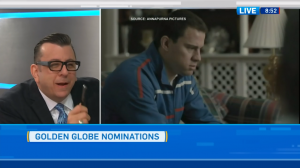 “Canada AM”: Richard and host on the Golden Globes nominations 2015
“Canada AM”: Richard and host on the Golden Globes nominations 2015
Watch the whole thing HERE!
MOTION PICTURES
Best Drama
Best Comedy
Best Director
Best Actress in a Drama
Best Actor in a Drama
Best Actor in a Musical or Comedy
Best Actress in a Musical or Comedy
Best Supporting Actress
Best Supporting Actor
Best Screenplay
Best Foreign Language Film
Best Animated Feature
Best Original Song
Best Score
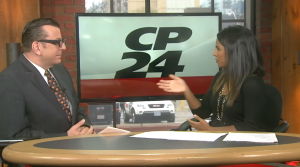 CP24 film critic Richard Crouse reviews the weekend’s big releases, “Maps to the Stars,” “Nightcrawler,” “Before I Go to Sleep” and “Horns.”
CP24 film critic Richard Crouse reviews the weekend’s big releases, “Maps to the Stars,” “Nightcrawler,” “Before I Go to Sleep” and “Horns.”
Watch the whole thing HERE!
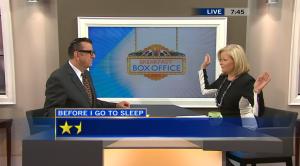 “Canada AM” film critic Richard Crouse reviews “Maps to the Stars,” “Nightcrawler” and “Before I Go To Sleep.”
“Canada AM” film critic Richard Crouse reviews “Maps to the Stars,” “Nightcrawler” and “Before I Go To Sleep.”
Watch the whole thing HERE!
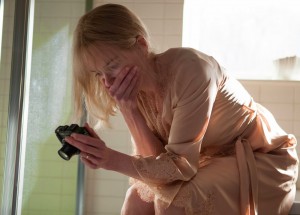 “Before I Go to Sleep,” the new Nicole Kidman movie, has a lot in common with the recent hit “Gone Girl.” Both star Academy Award winners, each feature a tall icy blonde actress in the lead role and are martial stories with an edge. The big difference between them? ”Gone Girl” is a hair-raising thriller and “Before I Go To Sleep” is not.
“Before I Go to Sleep,” the new Nicole Kidman movie, has a lot in common with the recent hit “Gone Girl.” Both star Academy Award winners, each feature a tall icy blonde actress in the lead role and are martial stories with an edge. The big difference between them? ”Gone Girl” is a hair-raising thriller and “Before I Go To Sleep” is not.
Based on the best-selling novel by S.J. Watson, it’s the story of Christine (Nicole Kidman), a traumatized woman who wakes up everyday with no memory. As she sleeps her mind erases itself, wiping away any new information. Her husband Ben (Colin Firth) has arranged their house as a tribute to their relationship—wedding pictures and mementoes from their life together decorate the walls—to help give her a sense of time, place and security. A neuropsychologist (Mark Strong) is secretly working with her to reassemble the shards of her memory, but as her synapsis start firing she begins to question everything about her life.
The thing that is supposed to keep us on the edge of our seats for the first hour or so of “Before I Go To Sleep” is the not knowing. Like Christine we’re never sure what is true and what is false. Of what we see how much of it is confabulation—Christine imagining the missing bits of her memory—and how much is real?
It’s the stuff of a solid thriller. “Memento,” “The Bourne Identity” and “Spellbound” have all masterfully mined similar material with more success. Director Rowan Joffe has made a stylish looking movie but allows it to get bogged down by repetition and too-tame performances. It’s a shame because the twist—and you know there has to be a twist—works well enough and there are a few tense moments in the climax but the preposterous denouement wipes away any good will the film’s exciting-ish apogee offered.